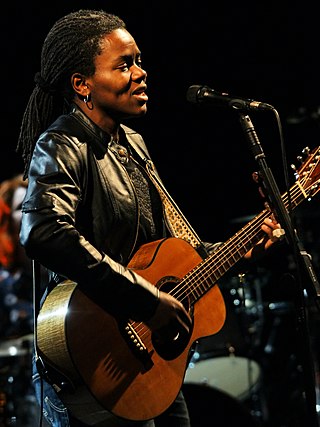
Tracy Chapman is an American singer-songwriter, widely known for her hit singles "Fast Car" (1988) and "Give Me One Reason" (1995).

Marquess Ōkuma Shigenobu was a Japanese politician who served as the prime minister of Japan in 1898, and from 1914 to 1916.

Shigeru Yoshida was a Japanese diplomat and politician who served as prime minister of Japan from 1946 to 1947 and again from 1948 to 1954, serving through most of the country's occupation after World War II. Yoshida played a major role in determining the course of post-war Japan by forging a strong relationship with the United States and pursuing economic recovery.

Kiichi Miyazawa was a Japanese politician who served as prime minister of Japan from 1991 to 1993.
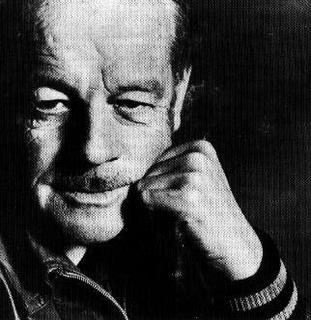
Alistair Stuart MacLean was a Scottish novelist who wrote popular thrillers and adventure stories. Many of his novels have been adapted to film, most notably The Guns of Navarone (1957) and Ice Station Zebra (1963). In the late 1960s, encouraged by film producer Elliott Kastner, MacLean began to write original screenplays, concurrently with an accompanying novel. The most successful was the first of these, the 1968 film Where Eagles Dare, which was also a bestselling novel. MacLean also published two novels under the pseudonym Ian Stuart. His books are estimated to have sold over 150 million copies, making him one of the best-selling fiction authors of all time.

George Chapman was an English dramatist, translator and poet. He was a classical scholar whose work shows the influence of Stoicism. William Minto speculated that Chapman is the unnamed Rival Poet of Shakespeare's sonnets. Chapman is seen as an anticipator of the metaphysical poets of the 17th century. He is best remembered for his translations of Homer's Iliad and Odyssey, and the Homeric Batrachomyomachia.

Hideki Shirakawa is a Japanese chemist, engineer, and Professor Emeritus at the University of Tsukuba and Zhejiang University. He is best known for his discovery of conductive polymers. He was co-recipient of the 2000 Nobel Prize in Chemistry jointly with Alan MacDiarmid and Alan Heeger.
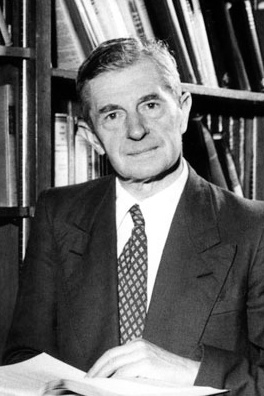
Sydney Chapman was a British mathematician and geophysicist. His work on the kinetic theory of gases, solar-terrestrial physics, and the Earth's ozone layer has inspired a broad range of research over many decades.
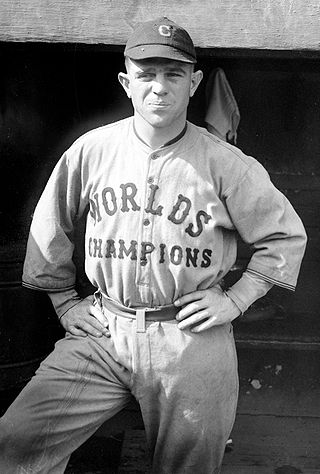
Joseph Wheeler Sewell was an American professional baseball infielder who played in Major League Baseball for the Cleveland Indians and New York Yankees from 1920 to 1933. He was elected to the Baseball Hall of Fame in 1977.
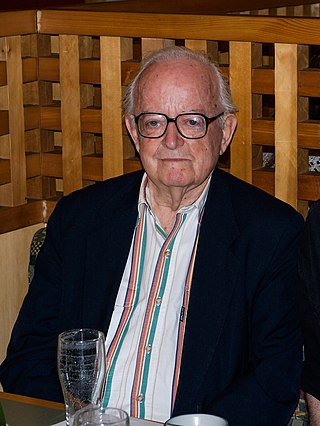
Edward George Seidensticker was a noted post-World War II American scholar, historian, and preeminent translator of classical and contemporary Japanese literature. His English translation of the epic The Tale of Genji, published in 1976, was especially well received critically and is counted among the preferred modern translations.

Chapman University is a private research university in Orange, California, United States. Encompassing eleven colleges, the university is classified among "R2: Doctoral Universities – High research activity". The school maintains its founding affiliations with the Christian Church and the United Church of Christ, but is a secular university.

Leonard Fielding Chapman Jr. was a United States Marine Corps general who served as the 24th Commandant of the Marine Corps from 1968 to 1972. He was a World War II combat veteran, decorated for his actions in the Battle of Peleliu and the Battle of Okinawa. He retired from the Marine Corps after 37 years of service. In retirement, he served as the Commissioner of the Immigration and Naturalization Service.

WMFO is a freeform radio station licensed to Medford, Massachusetts. The station is owned by Tufts University and is run by students and community members. WMFO is funded by the Tufts Student Activities Fee as allocated by the TCU Senate and through community donations.

Indian nationalist leader Subhas Chandra Bose died on 18 August 1945 from third-degree burns sustained after the bomber in which he was being transported as a guest of Lieutenant General Tsunamasa Shidei of the Imperial Japanese Kwantung Army crashed upon take off from the airport in Taihoku, Japanese Formosa, now Taipei, Taiwan. The chief pilot, copilot, and General Shidei were instantly killed.
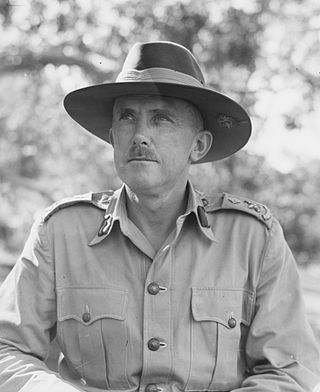
Lieutenant General Sir Frank Horton Berryman, was an Australian Army officer who served as a general during the Second World War. The son of an engine driver, he entered Duntroon in 1913. His class graduated early after the First World War broke out, and he served on the Western Front with the field artillery. After the war, he spent nearly twenty years as a major.

Syun-Ichi Akasofu [sʲɯn-itɕi̥ akasoɸɯ] is the founding director of the International Arctic Research Center of the University of Alaska Fairbanks (UAF), serving in that position from the center's establishment in 1998 until January 2007. Previously he had been director of the university's Geophysical Institute from 1986.
Joyce Lebra, also known as Joyce Chapman Lebra, was an American historian of Japan and India.
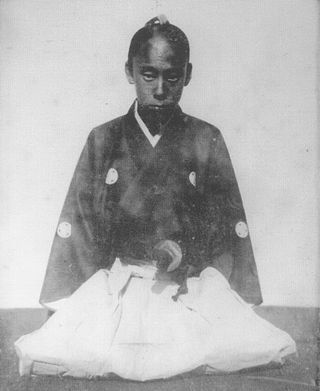
Matsudaira Sadaaki was a Japanese daimyō of the Bakumatsu period, who was the last ruler of the Kuwana Domain. Sadaaki was the adopted heir of Matsudaira Sadamichi, the descendant of Sadatsuna, the third son of Hisamatsu Sadakatsu (1569–1623), who was Tokugawa Ieyasu's brother. His family was known as the Hisamatsu Matsudaira clan. It was to this family that Matsudaira Sadanobu also belonged.
Jefferson Chapman is an archaeologist who conducted extensive excavations at sites in eastern Tennessee, recovering evidence that provided the first secure radiocarbon chronology for Early and Middle Archaic period assemblages in Eastern North America. He also is a research professor in anthropology and the Director of the Frank H. McClung Museum at the University of Tennessee, Knoxville. Chapman’s professional interests include Southeastern archaeology, paleoethnobotany, museology and public archaeology.

Todd Crawford Chapman is an American career diplomat who has served as the United States ambassador to Brazil from 2020 to 2021 and as the United States ambassador to Ecuador from 2016 to 2019.
















